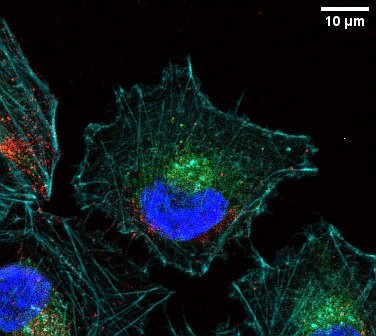First Measurement of Quantum Entanglement Speed Reveals Remarkable Insights

In a groundbreaking study, researchers at TU Wien University have successfully measured the speed of quantum entanglement for the first time, revealing that the process occurs not instantaneously, as previously believed, but at astonishing speeds quantified in attoseconds. This significant advancement in quantum mechanics could have profound implications for the future of quantum computing and our understanding of fundamental physics.
According to Professor Joachim Burgdörfer, a leading researcher at the Institute of Theoretical Physics at TU Wien, the notion that quantum entanglement happens instantaneously has been challenged by their findings. The team discovered that the entanglement process, which allows particles to remain connected over vast distances, occurs at speeds that cannot be measured in conventional time units like seconds or milliseconds, but rather in attoseconds—one quintillionth of a second (1,000,000,000,000,000,000).
The study, published in the journal *Physical Review Letters* on October 5, 2023, employed high-intensity laser pulses to create an entangled state between two electrons emitted from an atom. The researchers found that the timing of the entanglement is dependent on the energy state of the atom from which the electrons are ejected. Burgdörfer elaborated, "While the exact time of entanglement is not known in principle, our analysis suggests that the departing electron's timing can be inferred from the energy state of the remaining atom."
Assistant Professor Iva Březinová, who also contributed to the research, emphasized the complexity of the entanglement phenomenon, stating, "The electron doesn't just jump out of the atom. It is a wave that spills out of the atom, so to speak – and that takes a certain amount of time. It is during this phase that the entanglement occurs, which can then be precisely measured later by observing the two electrons."
The implications of this research are significant, particularly in the realm of quantum computing, where understanding the nuances of quantum entanglement is essential. As we move toward a future reliant on quantum technologies, insights into these fundamental processes will prove invaluable.
Dr. Sarah Johnson, a physicist at the Massachusetts Institute of Technology and an expert in quantum mechanics, commented on the broader impact of this work: "This study opens new avenues for research in quantum communication and computation, providing a clearer understanding of how entangled particles interact over distances. The precise measurement of entanglement speed may lead to enhanced efficiencies in quantum systems."
The findings also contribute to a deeper understanding of quantum theories that have long puzzled scientists. The idea of superposition—where particles can exist in multiple states at once—and the strange behavior of entangled particles have challenged classical physics for decades.
As the scientific community continues to explore the implications of quantum mechanics, this research underscores the dynamic and rapidly evolving nature of the field. The ability to measure and understand quantum entanglement is a significant step forward that could lead to revolutionary advancements in technology and our comprehension of the universe.
Advertisement
Tags
Advertisement





